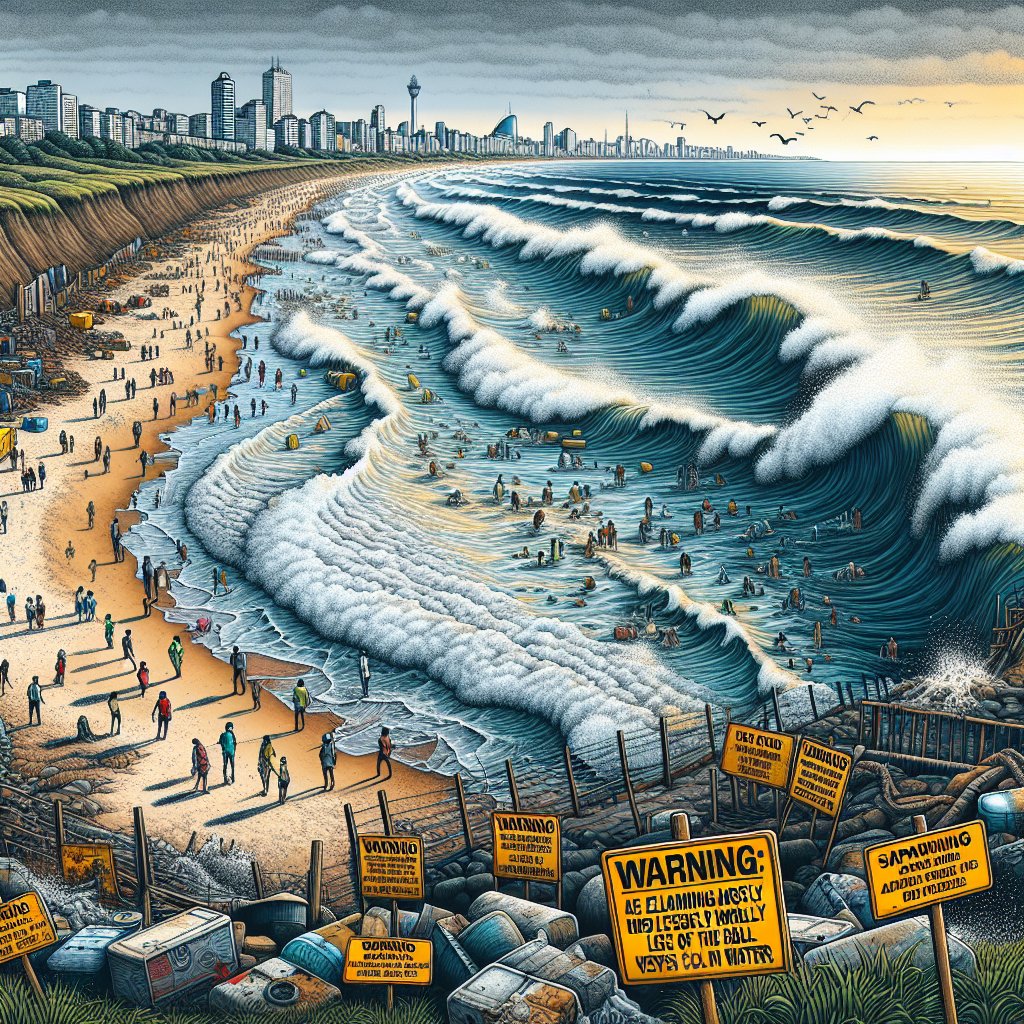Content created by AI
Durban Beaches Closed Due to Dangerous E. coli Contamination
The coastal city of Durban, known for its picturesque beaches and vibrant festive atmosphere, has encountered a significant setback this season. The popular holiday destination faces the closure of six main beaches due to alarmingly high levels of E. coli, casting a shadow on the season's festivities and raising concerns about public health and environmental management.
Recent tests from the eThekwini Municipality, in collaboration with independent partner Adopt-a-River and environmental consultancy firm Talbot, have revealed E. coli concentrations almost ten times above what is considered safe for bathing. This has led to prompt closures from Ushaka and Point Beach in the south to Country Club Beach in the north, all falling into "poor" and "critical" quality categories as per the set standards.
Testing exposed that the Country Club Beach, situated near the Umgeni River mouth, had E. coli levels approximately 500 times the acceptable limit. A similar situation was recorded at Battery Beach, affirming the direct impact these bodies of water have on oceanic pollution levels, especially post-rainfall when runoff is at its peak.
This environmental crisis is exacerbated by the repercussions of the devastating floods that occurred in April 2022, inflicting severe damage on infrastructure. The subsequent failure in infrastructural integrity has been a catalyst for the influx of E. coli into the ocean, deteriorating the city's beach water quality to the point of undisputable human health risks.
The World Health Organization has emphasized the severity of being exposed to such high levels of E. coli, ranging from stomach cramps and diarrhoea to vomiting. It is evident that the municipal and independent bodies have underscored a grave situation, necessitating continuous testing and monitoring to determine the safety of these popular recreational areas.
Durban's beleaguered situation brings to light multiple issues concerning urban development, sanitation, and environmental oversight. Swelling informal settlements, lacking proper sanitation facilities along the rivers, are implicated in the water quality debacle, further highlighting the city's challenges in managing urban growth and environmental sustainability.
In light of these closures, the city's administration, and environmental agencies, have been thrust into the spotlight. Their response, along with the proactive measures taken to improve the situation, will be critical in addressing public health concerns and restoring the confidence of locals and tourists in Durban's beaches.
The once bustling and inviting Durban coastline stands eerily quiet, as warning signs prohibit entry into the usually teeming waters. For now, the sound of waves crashing on the shore serves as a reminder of a city's fight against pollution and the quest to revive its natural allure for the sake of those who call Durban home and those who flock to its shores for respite.










